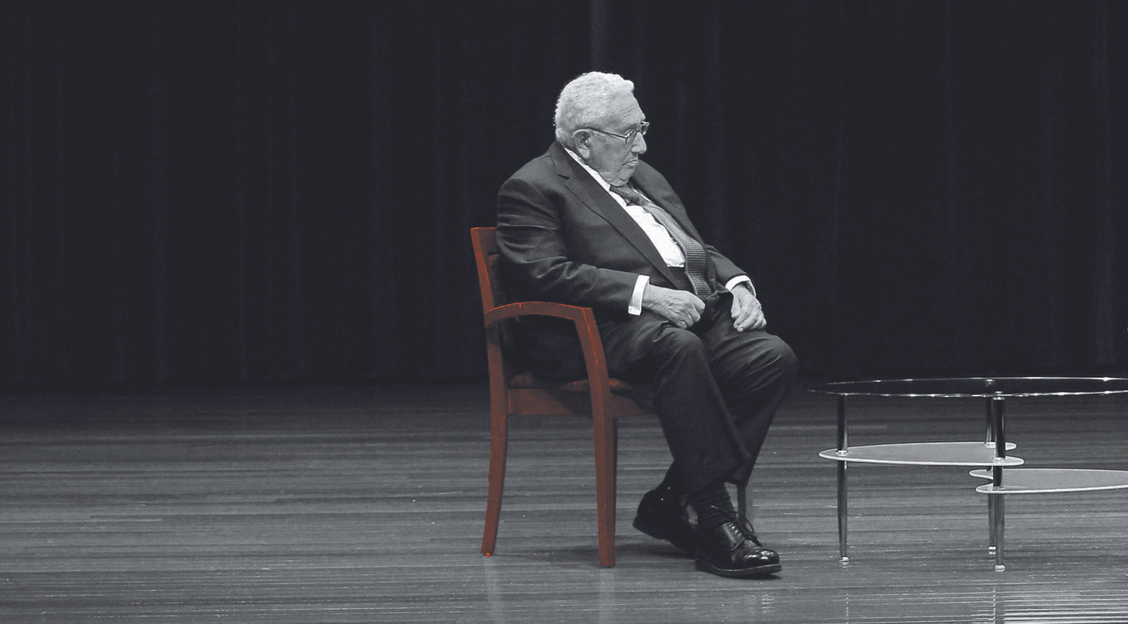Kissinger In Southern Africa
The liberation of former Portuguese colonies in Africa placed Henry Kissinger in a bind, and, in the words of Gerald Horne, ‘pushed the ordinarily duplicitous Kissinger into stances that were stunning, even by his unprincipled standard.’

Henry Kissinger almost drowned.
It was 1976. Scrambling to avoid being overtaken by events in the wake of Cuba’s earth-shattering intervention in Angola, he had decamped to southern Africa, where his immediate goal was to assess whether the illegal white minority regime in Rhodesia might endure. (Rhodesia, fearing that London was beginning to favor African majority rule in the colony, had recently issued its “Unilateral Declaration of Independence,” or UDI.) However, he had taken a tourist detour to the natural wonder European colonizers had earlier termed Victoria Falls—twice the height of its cousin, Niagara Falls. There, his overloaded boat almost capsized.
Kissinger and his navigator were able to right themselves in the nick of time. But US policy in the war-torn region seemed perpetually on the verge of capsizing, particularly when the Rhodesian minority regime was overthrown and replaced by the independent Zimbabwean government in 1980. Later, in 1994, Washington’s client in neighboring apartheid South Africa was finally dislodged in that nation’s first democratic election, which led to the swearing into office of President Nelson Mandela.
Still, that perilous journey to what became the border of Zambia and Zimbabwe did more than just potentially jeopardize the life of the US secretary of state. His unsuccessful negotiations with the Rhodesian regime also inflamed the base of the Republican Party in the United States, whose white supporters sympathized with their racial brethren under the flinty leadership of the Rhodesian prime minister, Ian Smith.
As Kissinger was gallivanting in southern Africa, President Gerald Ford was facing a challenge from former California governor Ronald Reagan in the GOP primaries. Reagan and his supporters charged that Kissinger and Ford were selling out the interests of the European minority in Salisbury and Pretoria. The white settlers of southern Africa, these critics of Washington’s policy charged, were, like themselves, the embodiment of “law and order” in the face of stiff and unruly challenges from rambunctious Negroes, be they in Harlem or in the city that would soon be Harare.
When Ford lost a critical GOP primary in May 1976, the supposed reason was Kissinger’s abandonment of the European minority population in southern Africa. James A. Baker III, a future secretary of state himself, was among those who demanded Kissinger’s resignation in response to the dip- lomat’s presumed malfeasance in the region. In the immediate aftermath of this setback, Kissinger was bewildered when he received, via correspondence, no fewer than 1,700 negative appraisals of his African handiwork, and a mere twenty-three messages backing African majority rule.
However, these critics had not followed events carefully. The eradication of fascist rule in Portugal in 1974 was followed seriatim by the liberation of Lisbon’s colony in Mozambique; likewise, the compelled decolonization of its sister colony in Angola, with a Cuban military force acting as skilled midwife, came soon after. These developments tightened the noose now encircling these nations’ besieged neighbors in Rhodesia and South Africa, while reducing Kissinger’s leverage. Kissinger was not engaging in puffery when he suggested that these Copernican changes in Portugal and southern Africa “revolutionized the geopolitical context.”
With the liberation of the former Portuguese colonies, the forces fighting for majority rule had a rear base: Mozambique served as a point from which to launch attacks inside South Africa, while Angola served as a site from which guerillas could be trained under the expert tutelage of Cuban instructors. Portugal was a key ally of the United States in NATO, and providing basing rights for Washington in the Azores was deemed strategic. This had hampered Washington’s ability to adjust to the new era of African majority rule, but now it seemed that failure to adjust could mean advances for a major geopolitical adversary: Cuba, Moscow’s ally in the Caribbean.
This placed Kissinger in a real bind. The Africans fighting minority rule—even today’s sainted Nelson Mandela—were then perceived as little more than Cuban and Soviet proxies. Thus, the secretary of state had to cede ground to those seen widely in the GOP as little more than communist dupes, while simultaneously inducing Salisbury to do the same. Unsurprisingly, this pushed the ordinarily duplicitous Kissinger into stances that were stunning, even by his unprincipled standard.
The largest bloc of votes in the United Nations was comprised of African nations, many of which were still smarting from decades—if not centuries—of colonial rule by Washington’s closest European allies. The events of 1974–75 in Portugal and its erstwhile colonies impelled independent Africa to step up its support for anti-regime forces in Rhodesia. In the Cold War context, these anti-colonial victories were seen in Washington as victories for the Soviet Union. This was bound to redound to Kissinger’s detriment, as this all occurred on his watch—which his ultra-right detractors did not see as coincidental.
Kissinger did not help his case with the GOP base when he pledged “unrelenting opposition” to minority rule. “American travelers will be advised against entering Rhodesia,” he declared. “American residents will be urged to leave.” The response to his remarks was unbridled anger.
— Excerpted from The Good Die Young: The Verdict on Henry Kissinger, introduction by Greg Grandin, edited by Rene Rojas, Bhaskar Sunkara and Jonah Walters.
[book-strip index="1" style="buy"]

